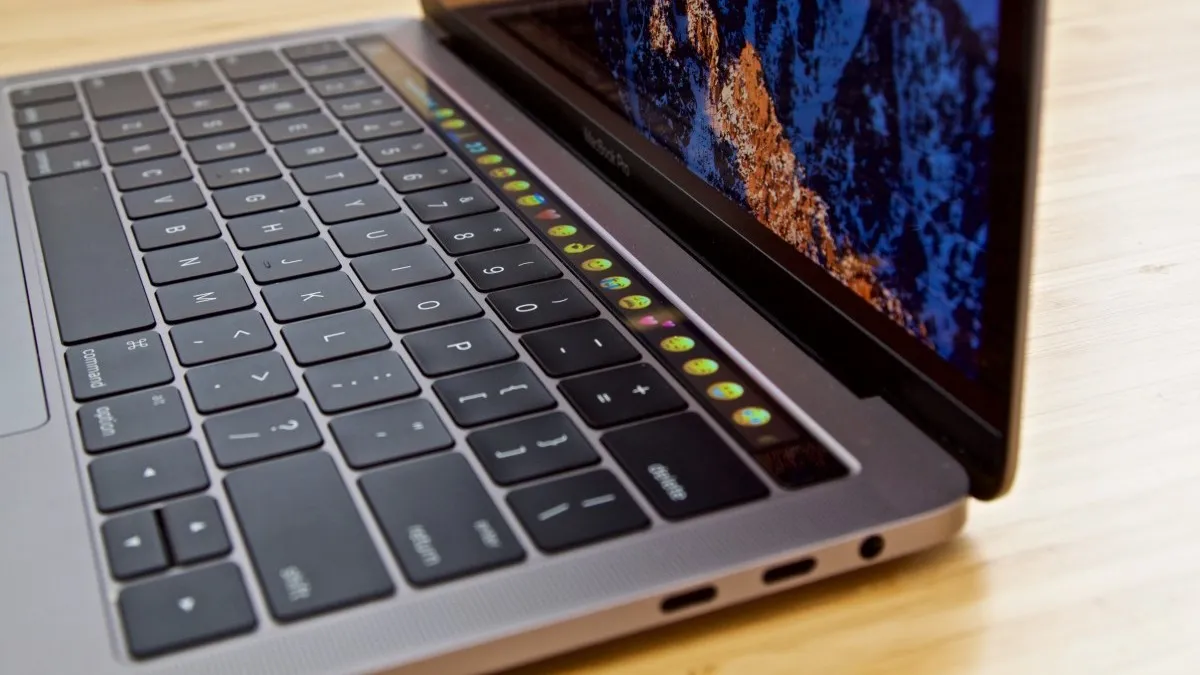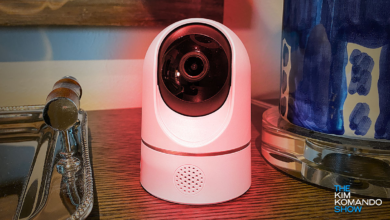Laptops Buying Hacks: What to Look for in a Laptop

Are you in the market for a new laptop? With a plethora of options available, selecting the right laptop that perfectly suits your needs can be a daunting task. Whether you’re a student, a professional, a creative artist, or simply an everyday user, these comprehensive laptops buying hacks will steer you through the intricacies of choosing the ideal device. In these laptop buying hacks, we’ll explore different factors to consider, compare key specifications, and provide you with invaluable insights to make an informed decision. Let’s dive in!
Read More: How to Keep Your Phone or Laptop From Overheating

Laptops Buying Hacks: The Role of Laptops in Modern Life
In today’s fast-paced world, laptops have become indispensable tools that empower us to work, create, connect, and learn. Whether you’re a student attending online classes, a professional juggling tasks, a creative mind bringing visions to life, or a gamer seeking immersive experiences, a laptop is your gateway to a world of possibilities.
Determining Your Needs: What Will You Use Your Laptop For?
The first step in finding your perfect laptop is to identify your specific usage requirements. Are you primarily using it for casual web browsing, productivity tasks, creative pursuits, or intensive gaming?
Casual Use
If your laptop needs revolve around web browsing, social media, and basic office tasks, an entry-level laptop with a decent processor and sufficient memory might be suitable.
Productivity and Business
Professionals and business users should prioritize laptops with robust processing power, ample memory, and a comfortable keyboard. Look for a laptop that can effortlessly handle multitasking and demanding applications.
Creative Work
For graphic designers, video editors, and content creators, a laptop with a high-resolution display, powerful graphics card, and ample storage is essential to bring your visions to life.
Gaming
Gamers require laptops equipped with dedicated graphics cards, high refresh rate displays, and efficient cooling systems. Consider a gaming laptop if you’re passionate about experiencing the latest titles without compromise.

Laptops Buying Hacks: Key Specifications to Evaluate
The technical specifications of a laptop play a crucial role in determining its performance and capabilities. Let’s delve into some key specifications that you should pay attention to.
Processor (CPU)
The processor acts as the brain of your laptop, influencing its speed and performance. Intel and AMD offer a range of processors catering to different needs and budgets.
Memory (RAM)
Random Access Memory (RAM) affects your laptop’s ability to run multiple applications simultaneously. Aim for at least 8GB for casual use, while power users and creatives might benefit from 16GB or more.
Storage (SSD vs. HDD)
Solid State Drives (SSDs) deliver faster performance and better durability compared to Hard Disk Drives (HDDs). While SSDs offer quicker data access, HDDs provide larger storage capacities at a lower cost.
Graphics Card (GPU)
For gaming and graphics-intensive tasks, a dedicated GPU is essential. NVIDIA and AMD offer a range of GPUs tailored to different performance levels.
Display
The display size, resolution, and panel type (IPS, OLED, etc.) impact your visual experience. Consider a higher resolution and color accuracy for creative work, while gamers may prioritize refresh rates.
Battery Life
If you’re often on the move, opt for a laptop with extended battery life. Manufacturers’ battery life estimates may vary, so read reviews for real-world insights.
Stay tuned for the continuation of this comprehensive Laptops Buying hacks in the upcoming sections!
Operating Systems: Windows, macOS, or Linux?
When it comes to operating systems, your choice can significantly impact your laptop experience. Each OS has its own strengths and weaknesses.
Laptop Form Factors: Finding the Right Fit
Laptops come in various shapes and sizes, each designed to cater to different needs. Let’s explore some common form factors.
Ultrabooks
Ultrabooks are ultra-slim, lightweight laptops designed for portability and performance. They’re perfect for professionals and frequent travelers.
2-in-1 Convertibles
Convertible laptops offer versatility by transforming between laptop and tablet modes. They’re ideal for creative tasks and presentations.
Traditional Laptops
Traditional laptops strike a balance between performance and portability, making them suitable for a wide range of users and tasks.
Gaming Laptops
Gaming laptops pack powerful hardware to deliver immersive gaming experiences. They often feature bold designs and customizable RGB lighting.
Connectivity: Ports and Wireless Options
Considering your connectivity needs is crucial. Laptops come with a variety of ports and wireless technologies.
Brand Considerations: Which Manufacturer to Choose?
The brand of your laptop can influence factors like build quality, customer support, and design aesthetics. Popular laptop manufacturers include Dell, HP, Lenovo, Apple, ASUS, and Acer.
Budgeting Wisely: Getting the Best Value for Your Money
Setting a budget helps narrow down your options. It’s important to find the right balance between price and performance.
Reading Reviews and Seeking Recommendations
Before making a decision, read reviews from trusted sources and seek recommendations from friends or online communities.
Making Your Purchase: Online vs. In-Store
Decide whether to purchase your laptop online or from a physical store. Both options have their advantages, so choose based on your preferences.
Maintenance and Extended Warranties
Taking care of your laptop ensures its longevity. Consider purchasing an extended warranty for added protection.
Environmental Impact: Sustainability and E-Waste
Choosing an environmentally conscious laptop brand and properly disposing of old devices can contribute to reducing e-waste.
What to Look for in a Laptop: A Comprehensive Guide
In today’s digital age, a laptop is no longer just a luxury but a necessity for work, entertainment, and communication. With a myriad of options available, it’s essential to know what to look for when purchasing a laptop. Whether you’re a student, a professional, or a casual user, these detailed laptop buying hacks will walk you through the key factors to consider to ensure you make the right choice.
1. Purpose and Usage
Before diving into technical specifications, determine how you plan to use the laptop. Are you looking for a device for basic web browsing, office tasks, graphic design, gaming, or video editing? Your usage will dictate the necessary features and performance levels.
2. Operating System
Choose an operating system (OS) that aligns with your preferences and needs. Windows, macOS, and Linux are the main contenders. Windows offers broad compatibility and software availability, macOS is known for its user-friendly interface and creative tools, while Linux provides customization and open-source capabilities.
3. Performance and Processing Power
The laptop’s processor (CPU) is its engine. Look for Intel Core i5/i7 or AMD Ryzen processors for a balance between performance and power efficiency. A faster CPU ensures smoother multitasking and quicker application launches.
4. Memory (RAM)
RAM affects how efficiently your laptop handles tasks. Aim for a minimum of 8GB for casual use and 16GB for more demanding tasks like video editing or multitasking.
5. Storage
Solid State Drives (SSDs) are preferred over Hard Disk Drives (HDDs) due to their speed and durability. Opt for at least 256GB of SSD storage for a responsive experience. If budget allows, consider a higher capacity SSD or a dual storage setup.
6. Graphics Processing Unit (GPU)
If you’re into gaming, graphic design, or video editing, a dedicated GPU is essential. NVIDIA and AMD GPUs offer varying levels of performance, so choose one that matches your requirements.
7. Display Quality
The display significantly impacts your user experience. Look for a Full HD (1920×1080) resolution or higher. Consider an IPS or OLED panel for better color accuracy and wider viewing angles.
8. Battery Life
For portability, longer battery life is crucial. Manufacturers’ battery life estimates can be optimistic, so read reviews for real-world usage information.
9. Build Quality and Portability
Choose a laptop with a sturdy build that suits your lifestyle. Ultrabooks are thin and lightweight, ideal for travelers, while larger laptops offer more screen real estate and better cooling.
10. Keyboard and Touchpad
A comfortable keyboard and responsive touchpad are essential, especially if you type a lot. Consider laptops with backlit keyboards for improved usability in low-light conditions.
11. Connectivity Options
Ensure the laptop has the necessary ports for your peripherals. USB Type-A and Type-C ports, HDMI, and an SD card reader are common and versatile options.
12. Audio and Speakers
Good audio quality enhances entertainment and communication. Look for laptops with decent speakers and consider using headphones for immersive sound.
13. Webcam and Microphone
With the rise of remote work and online communication, a high-quality webcam and microphone are essential for video conferencing and content creation.
14. Price and Value
Set a budget and prioritize features based on your needs. Research thoroughly to find a laptop that offers the best value for your investment.
15. Customer Reviews and Recommendations
Read reviews from reputable sources and seek recommendations from friends or online communities to gain insights into real-world experiences with the laptop you’re considering.
By carefully evaluating these factors, you’ll be well-equipped to choose a laptop that perfectly suits your needs, enhancing your productivity, creativity, and overall computing experience.
Read More: Surface Laptop 5 hands-on: A bare minimum update in 2023
Conclusion: Laptops Buying Hacks
Selecting the right laptop is a significant decision that requires careful consideration. By understanding your needs, evaluating specifications, and exploring various options, you can find a laptop that seamlessly integrates into your lifestyle, boosting your productivity, creativity, or gaming experiences. We hope these laptops buying hacks will help you to buy a right laptop.
FAQs: Laptops Buying Hacks
Q1: What’s the best laptop for college students on a tight budget?
A: For budget-conscious students, laptops from brands like Acer, ASUS, and Lenovo offer good value with decent performance and features.
Q2: Can I upgrade the RAM and storage of my laptop later?
A: It depends on the laptop model. Some laptops allow RAM and storage upgrades, while others have soldered components. Check the specifications before purchasing.
Q3: Is a dedicated GPU necessary for graphic design work?
A: A dedicated GPU is beneficial for complex graphic design tasks, as it accelerates rendering and improves overall performance.
Q4: What’s the difference between an SSD and an HDD?
A: SSDs are faster and more durable than HDDs, providing quicker data access and improved system responsiveness.
Q5: How do I clean and maintain my laptop’s exterior?
A: Use a soft, lint-free cloth to wipe the exterior regularly. Avoid using harsh cleaning agents that may damage the laptop’s finish.
Now that you’re equipped with the knowledge to make an informed laptop purchase, start exploring your options and find the perfect device to suit your needs and preferences. Happy laptop hunting!








2 Comments